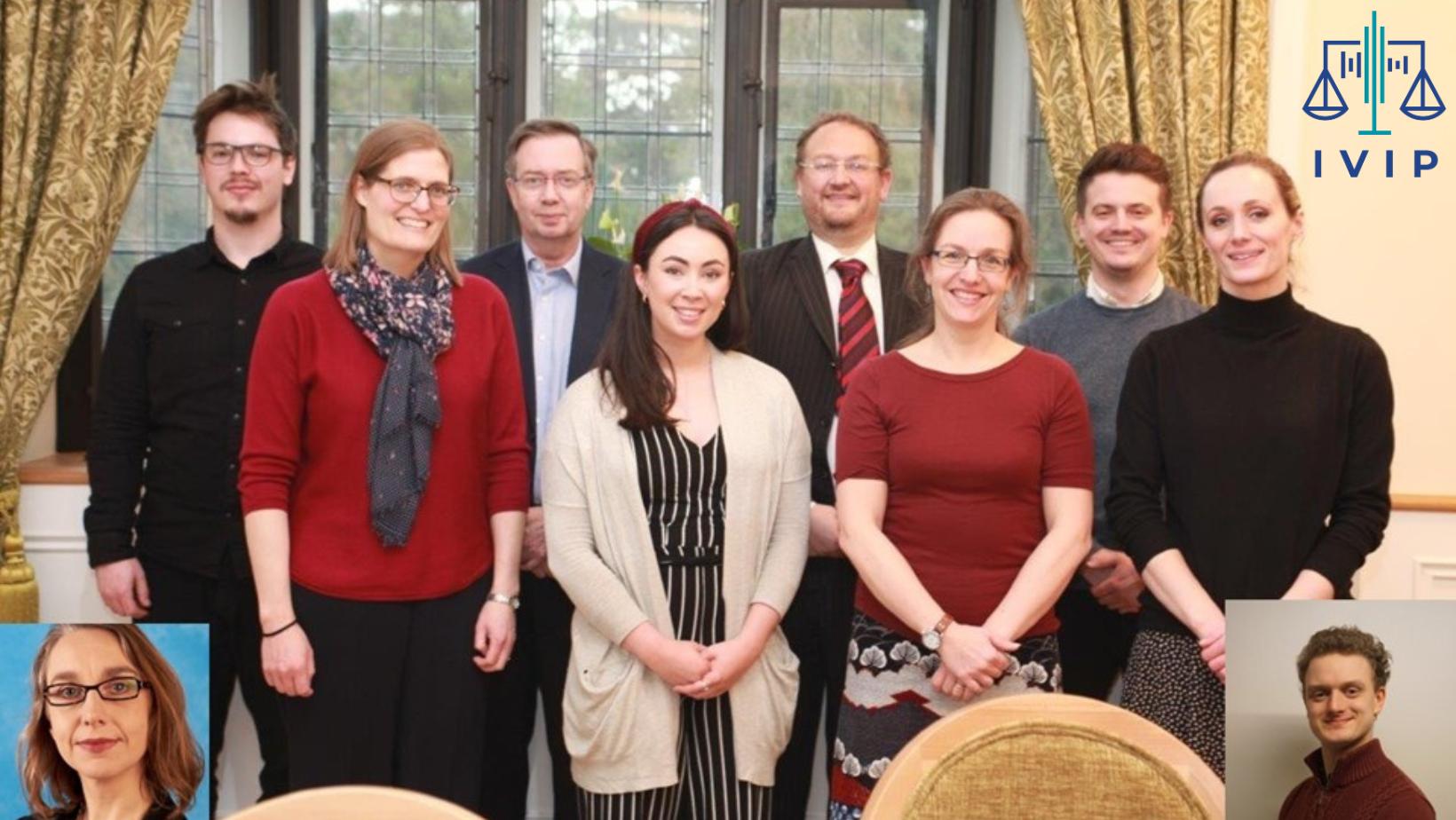
Submitted by Jane Durkin on Tue, 14/11/2023 - 12:49
Police officers, legal professionals and forensic speech scientists joined academics from the Improving Voice Identification Procedures (IVIP) research team for a day of knowledge exchange at Selwyn College on 22 September.
The event was an opportunity to share findings from IVIP – an interdisciplinary project on earwitness evidence and voice parades – and discuss their application in forensic practice.
IVIP is a four-year Economic and Social Research Council (ESRC)-funded project. It aims to improve the understanding of earwitness behaviour and how the criminal justice system uses earwitness evidence.
The project is led by Kirsty McDougall, Associate Professor of Phonetics at Cambridge, with co-investigators in linguistics, psychology, criminology and law from Cambridge, Oxford, Nottingham Trent and De Montfort Universities.
Voice parades are an identification technique similar to visual identity parades. They are used when a voice has been heard at a crime scene and the victim or a witness believes they could recognise it if heard again.
The witness is asked whether he or she can pick out the voice of the speaker heard at the crime scene from a line-up of recorded speech samples. The line-up usually includes the suspect's voice along with a number of 'foil' voices.
In practice, current procedures for setting up voice parades are time-consuming and expensive, and very few parades take place.
In England and Wales, the guidelines on how voice parades should be conducted were developed as an extension of the police procedure for visual identification parades.
However, since the original guidelines were published in 2003, psychological research has shown there are marked differences between face and voice processing. This highlighted the need for further research to ensure voice identification procedures are set up to optimise earwitness performance – work which has been undertaken by the IVIP team since 2019.
The aim of the knowledge exchange event was to present IVIP’s latest findings and discuss proposals for revising current voice parade guidelines in England and Wales. The event included presentations from the IVIP team, as well as interactive discussions with stakeholders. Impact and consultation with law enforcement, legal and forensic practitioners have been key throughout the IVIP project.
The presentations covered the four main strands of the IVIP project.
Jeremy Robson, Barrister and Associate Professor in Law at De Montfort University, presented the legal background to earwitness evidence. He has surveyed police and legal practitioners to assess their awareness and experience of voice parades, attitudes to conducting voice parades and how earwitness evidence is received in court. He has found generally low knowledge and uptake of voice parades.
Natalie Braber, Professor of Linguistics at Nottingham Trent University, and Alice Paver, IVIP Research Assistant at Cambridge, presented their work on stereotypes and prejudices about voices. They have been investigating why some voices sound more guilty than others. They have found, for example, that lower pitched voices can sound less friendly or honest, and slower speakers – those with a lower articulation rate – are perceived to be less intelligent.
Kirsty McDougall presented work she has led in collaboration with Professor Francis Nolan from the Cambridge Phonetics Laboratory, into why certain speakers are more distinctive-sounding than others. This work can inform how ‘foil’ voices are chosen and help predict what kind of voice is likely to be identified well or poorly in a parade.
Harriet Smith and colleagues from Nottingham Trent University, Peter Goodwin, and Nikolas Pautz presented the IVIP team's research on optimal parameters for voice parades. This strand of research has been investigating aspects of voice parades such as length of speech samples, number of foil voices, and instructions for witnesses, from a psychological perspective.
They have found, for example, that shortening speech samples reduces the cognitive load on earwitnesses without having a negative impact on identification performance. Their research on duration and the number of foils included in voice parades has been published in Sage’s Quarterly Journal of Experimental Psychology: ‘Identifying unfamiliar voices: Examining the system variables of sample duration and parade size’.
Other IVIP members include David Wright, Associate Professor in Linguistics at Nottingham Trent University, and Katrin Müller-Johnson, Associate Professor of Criminology at Oxford University.
ESRC Grant Ref: ES/S015965/1
